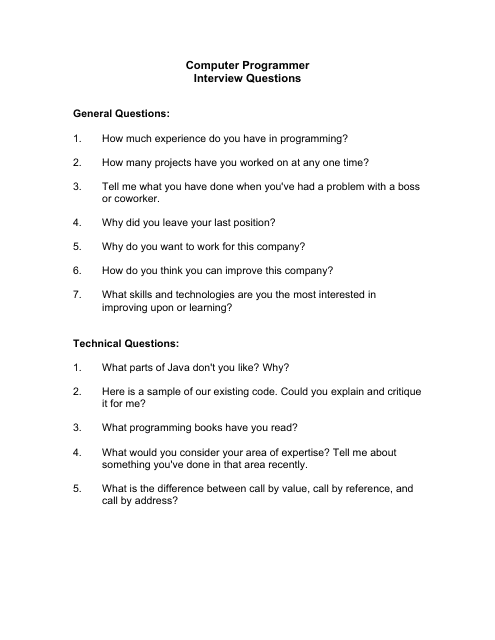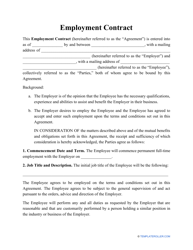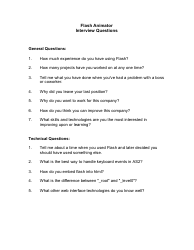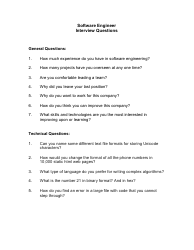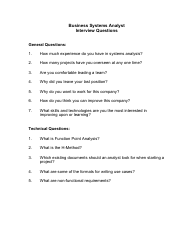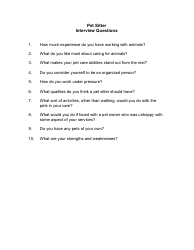Sample Computer Programmer Interview Questions
Sample Computer Programmer Interview Questions are typically used by employers to assess the technical knowledge, problem-solving abilities, and coding skills of candidates applying for computer programming roles. These questions help employers gauge the candidate's proficiency in various programming languages, algorithms, data structures, problem-solving techniques, and their overall fit for the job.
FAQ
Q: What is the role of a computer programmer?
A: A computer programmer is responsible for writing, testing, and maintaining computer programs.
Q: What programming languages do you have experience with?
A: I have experience with languages like Java, C++, Python, and JavaScript.
Q: What steps do you follow when writing a program?
A: I typically follow a process that involves analyzing requirements, designing a solution, coding, testing, and debugging.
Q: Can you explain the difference between a compiler and an interpreter?
A: A compiler translates the entire program into machine code before execution, while an interpreter translates and executes the program line by line.
Q: How do you approach debugging and fixing errors in your code?
A: I use debugging tools, analyze error messages, and review my code to identify and fix errors.
Q: Have you worked on any team projects? How did you collaborate with other team members?
A: Yes, I have worked on team projects. I collaborate with team members through regular communication, code reviews, and version control systems.
Q: Can you describe a challenging programming problem you faced and how you solved it?
A: I faced a complex problem in a previous project and solved it by breaking it down into smaller tasks, doing extensive research, and seeking help from colleagues.
Q: What programming projects or personal coding hobbies have you worked on outside of work?
A: I have worked on projects like building web applications, creating mobile apps, and contributing to open-source software.
Q: Can you explain object-oriented programming and its advantages?
A: Object-oriented programming is a programming paradigm that organizes code around objects that have data and behavior. Its advantages include code reusability, modularity, and ease of maintenance.
